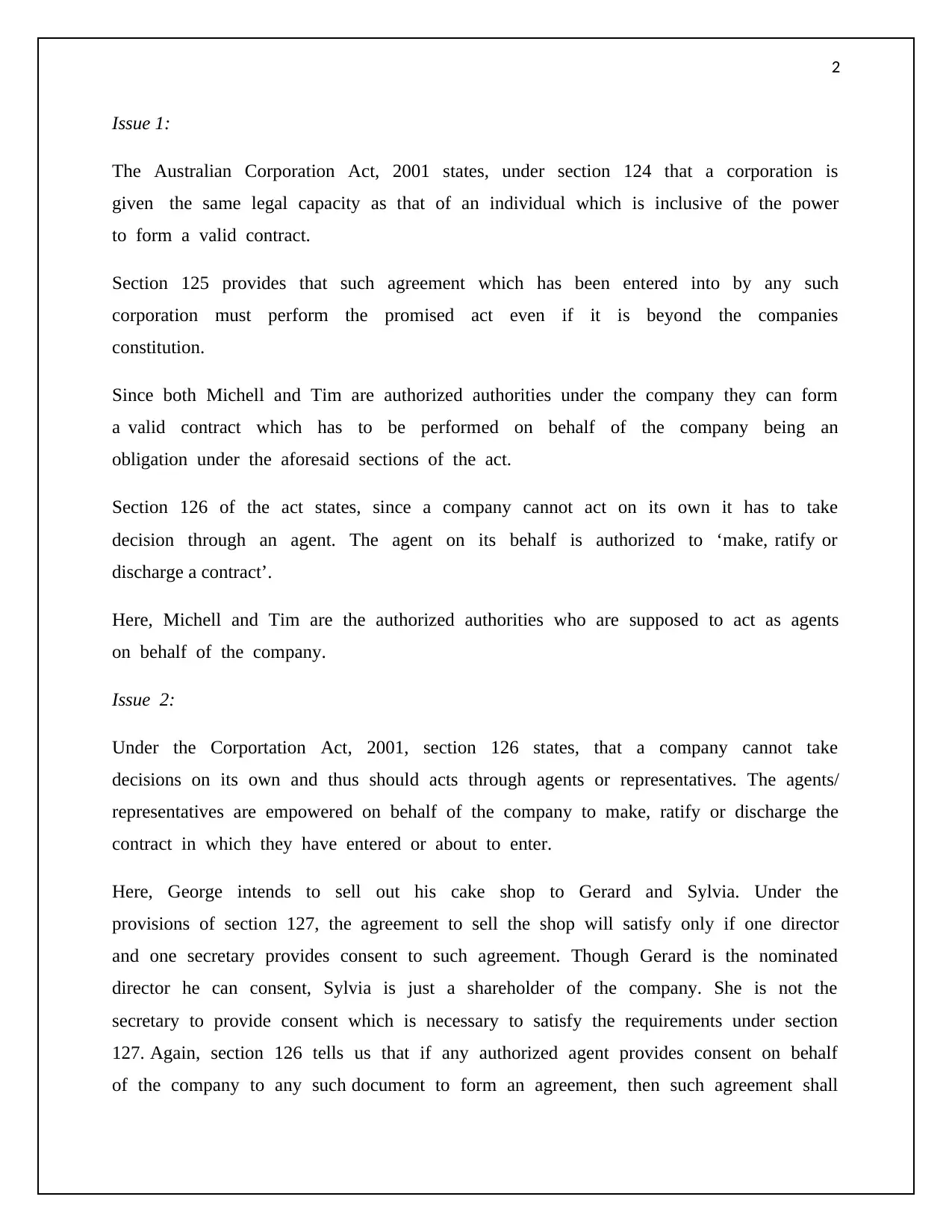Legal Analysis of Contracts, Corporation Law and Related Issues
VerifiedAdded on 2020/04/01
|4
|450
|198
Report
AI Summary
This report provides a detailed analysis of contracts and corporation law, specifically focusing on the Australian Corporation Act 2001. The report examines two key issues: the validity of contracts formed by authorized representatives of a company (Michell and Tim) and the requirements for a binding agreement when selling a business (George, Gerard, and Sylvia). It explores sections 124, 125, 126, and 127 of the Act, highlighting the powers of corporations to enter contracts, the role of agents, and the necessary consents for agreements. The report concludes that the contracts are binding and should be performed. This assignment is designed to enhance understanding of corporate law principles and the application of the Australian Corporation Act 2001. It uses references from legal literature to support its analysis.
1 out of 4











![[object Object]](/_next/static/media/star-bottom.7253800d.svg)